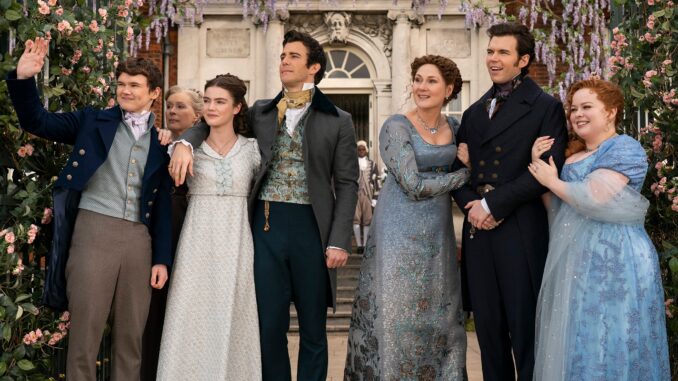
Is Hollywood truly embracing diversity, or is it just a facade? While the entertainment industry celebrates successes like Bridgerton, some actors argue that there’s a deeper problem being ignored. A Bristol star has recently voiced their frustration, revealing the systemic barriers Black actors still face despite high-profile shows breaking new ground.
In this article, we’ll delve into the actor’s perspective, explore why diversity remains a challenge, and uncover actionable solutions for real change.
Diversity in Hollywood – A Surface-Level Shift?
Why Bridgerton Set a New Standard for Inclusion
When Bridgerton hit our screens, it captivated audiences with its revolutionary approach to period dramas. Featuring a racially diverse cast in roles traditionally dominated by white actors, it became a symbol of progress. But is it enough?
The Bristol Star’s Stand – Beyond the Glamour
Despite Bridgerton’s success, a prominent Bristol actor has called out the industry for its failure to provide sustained opportunities for Black actors. They argue that inclusion in high-profile projects shouldn’t overshadow the lack of diversity in other areas of the industry.
The Harsh Realities Black Actors Face
Typecasting and Limited Roles
Even with groundbreaking shows like Bridgerton, Black actors frequently find themselves typecast. Stereotypical roles remain the norm, limiting their ability to showcase their full range of talent.
Behind the Camera – A Bigger Problem
Diversity isn’t just about who appears on screen; it’s also about who writes, directs, and produces. Black creators are significantly underrepresented in these key roles, perpetuating a cycle of limited representation.
Systemic Barriers in Casting
Many casting directors still adhere to outdated perceptions, often overlooking Black actors for leading roles. This systemic bias undermines any progress made by high-profile projects.
Why Bridgerton’s Success Isn’t Enough
One Show Can’t Fix a System
While Bridgerton was a step forward, relying on a single show to represent progress is unrealistic. True change requires widespread, consistent efforts across all genres and platforms.
Tokenism Versus True Inclusion
The Bristol star pointed out a critical issue: tokenism. Placing a handful of Black actors in prominent roles may look like progress, but it doesn’t address the root problem of systemic exclusion.
Addressing Pay Gaps
Another frustration voiced is the disparity in pay. Black actors often earn less than their white counterparts, even when performing in equally demanding roles.
How the Industry Can Drive Real Change
Diversifying Leadership Teams
Change starts at the top. Hiring more Black executives, producers, and decision-makers can lead to a more inclusive industry.
Expanding Opportunities for Black Creators
Creating platforms for Black writers, directors, and producers is essential for authentic storytelling.
Rethinking Casting Processes
Casting directors need to evaluate talent without preconceived biases. Blind auditions and diversity-focused initiatives could be game-changers.
Investing in Black-Led Projects
Backing Black-led projects ensures that stories from diverse perspectives are told, fostering a more inclusive industry.
Why This Matters – A Call for Action
Representation Impacts Society
Representation in media shapes perceptions and influences societal norms. By sidelining Black actors, the industry perpetuates stereotypes and misses opportunities to inspire change.
A More Inclusive Future
For Hollywood to truly reflect the world, it must embrace inclusion at every level—not just on screen but also behind the scenes.
Conclusion
The Bristol star’s frustration serves as a wake-up call for the entertainment industry. Shows like Bridgerton prove that diversity resonates with audiences, but they’re not the end goal. True progress requires systemic change, authentic representation, and sustained efforts to break barriers for Black actors and creators.
It’s time for Hollywood to listen, act, and create a space where everyone’s story is valued and celebrated.
FAQs
1. Why is Bridgerton considered a milestone for diversity in Hollywood?
Bridgerton challenged norms by featuring a racially diverse cast in a period drama, proving that inclusion can enhance storytelling.
2. What are some barriers Black actors face in the industry?
Black actors often face typecasting, limited opportunities, pay disparities, and systemic biases in casting and production.
3. How can the industry address these challenges?
The industry can drive change by diversifying leadership, supporting Black creators, rethinking casting processes, and investing in inclusive projects.
4. Is tokenism a problem in Hollywood?
Yes, tokenism creates the illusion of diversity without addressing systemic barriers, limiting meaningful progress.
5. What can audiences do to support diversity?
Audiences can amplify diverse voices by supporting Black-led projects, advocating for inclusion, and calling out inequities in the industry.
